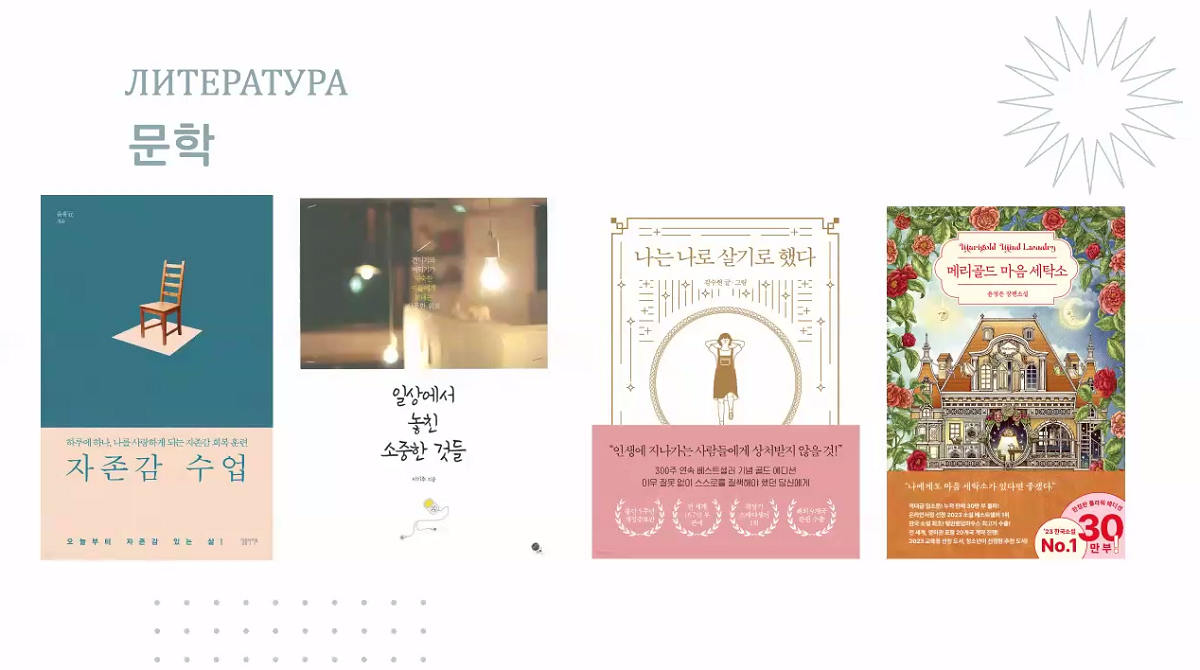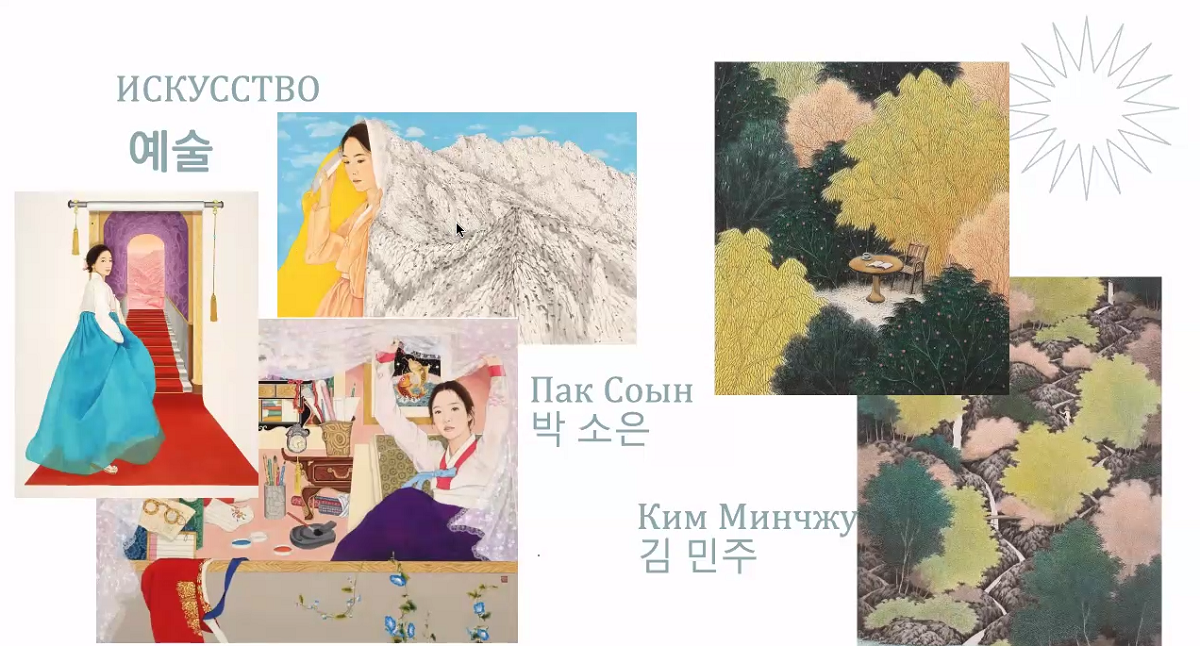"Engaging with reality, not escaping from it": Korean studies expert Natalia Dmitrievskaia on healing culture in Korea
A lecture on healing culture (힐링) in South Korea has been held during an online meeting of the Korean Club, established on the initiative of the Korea — Russia Dialogue Forum and St Petersburg University. The guest at the meeting was Natalia Dmitrievskaia, a graduate of St Petersburg University, a Korean studies expert, researcher and translator.
In many countries across the globe, people are striving to find ways to deal with poor mental states, such as: burnout; low self-esteem; or depression. Interest in emotional and physical healing is a rather recent trend that emerged in the USA in the 2000s. The primary objective is to address and overcome personal health challenges and improve one’s psychological well-being through personal intellectual and spiritual growth. Russian and Korean students were told about health issues related to overwork and stress — unwanted by-products of modern life.
Natalia Dmitrievskaia explained why healing culture has become so popular in South Korea. The root causes are: fierce competition in society, starting at primary school; South Korea’s high suicide rate; low birth rate; and ageing society. Among the positive reasons for the wide support of the trend are the advancement of medicine and the country’s economic prosperity. South Korea is the 14th largest economy in the world by GDP. This allows for switching off the "survival mode" and focusing on mental well-being.

In South Korea, healing culture surged in popularity in the 2010s. Books on self-development were sold like hot cakes. Many academic programmes on psychological well-being were launched. Seonam University established the Faculty of Healing. Countless healing retreats were opened across the country. Natalia Dmitrievskaia also highlighted disadvantages of this trend: the short-term therapeutic effect; the impossibility of a fundamental change in the social structure; and the critical attitude towards making money from other people’s misery.

Since then, the original idea has been transformed into the concept of "K-healing" that, according to Natalia Dmitrievskaia, is based on the traditional Korean values, such as: admiring nature and honouring elders; collectivism and mutual help; aesthetic harmony between the external and internal worlds; and openness and sincerity.
In the West, people seek to get away from the real world into a meditative state through cultural pursuits and travel, whereas Koreans suggest interacting with reality and learning to live in harmony with it.
Natalia Dmitrievskaia, a graduate of St Petersburg University, a Korean studies expert, researcher and translator
The government and large South Korean corporations also support this social trend. For example, the government holds an annual K-Healing Festival. One of the ramen noodles producers has been putting chopsticks with motivational inscriptions in its noodle boxes since 2018. In her lecture, Natalia Dmitrievskaia also spoke about the healing narrative in contemporary South Korean art. "In some ways, healing art resembles traditional art. For instance, artist Park So-Eun likes to depict girls wearing a traditional hanbok dress in the lap of nature, usually set in a mountainous area where you want to 'dissolve', becoming part of nature. Mountains in Korea are considered a symbol of harmony and healing," Natalia Dmitrievskaia explained.
As illustrated by Natalia Dmitrievskaia, contemporary South Korean films also develop the healing narrative. Thus, many South Korean films and TV dramas explore the theme of mental health and overcoming social challenges through self-acceptance. For further reading on the topic of South Korean healing culture, Natalia Dmitrievskaia recommended a number of books, in particular a book by Kim Soo-Hyun "I Decided to Live as Me".

